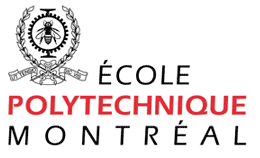Prof J Vétel
No more applications being accepted
Funded PhD Project (Students Worldwide)
About the Project
The aerospace industry currently faces severe constraints (environmental, economic, etc.). Among them, certification standards are increasingly demanding concerning aircraft icing, where the level of knowledge is still low due to a critical lack of detailed experimental data in this field. In particular, the heat transfer over contaminated aerodynamic surfaces (wings, fuselage, etc.) affects the aircraft performance and security margins.
In this context, the general background of the proposed PhD is to study aerothermal flows on surfaces encountering multiphase air/water conditions (solid/icing, liquid/water). Due to the complexity induced by the many flow phenomena that are involved, different objectives are planned:
- to measure in an icing wind tunnel the water/ice thickness distribution over an airfoil surface in time, and to classify physical phenomena responsible for the transient ice accretion processes from the formation of initial water films to accumulated ice;
- to build a solid model of the rough surface and to perform measurements to characterize roughness effects on boundary-layer properties including heat transfer effects;
- to examine existing aerothermal wall function laws or to propose new ones based on acquired data for the calibration of turbulence models;
- depending on the progress, it could also be envisaged to gather new data on superhydrophobic or icephobic surfaces.
The research will be held in the department of mechanical engineering at Polytechnique Montreal, specifically with professors involved in fluid mechanics. Our laboratories are fully equipped with numerous experimental techniques (including a phase Doppler anemometer to measure the velocity, size and distribution of solid/liquid particles, particle image velocimetry systems, a Laser Doppler anemometer, a thermal imaging camera, etc.).
The work is mainly experimental but the candidate will also have to closely work with a team focused on aerothermodynamic turbulence models for numerical simulations. The PhD will begin in fall 2020. Candidatures are evaluated continuously starting from February 15th.
The candidates should have a solid background in fluid mechanics, with preferentially an experience in experimental techniques. Having a master’s degree in this field would be an asset.
The applicants should send the following documents to [Email Address Removed] for the initial selection process:
- a cover letter
- a CV
- a list of pertinent courses with transcripts.
Funding Notes
The funding follows the standards recommended by the Natural Sciences and Engineering Research Council of Canada.

 Continue with Facebook
Continue with Facebook

